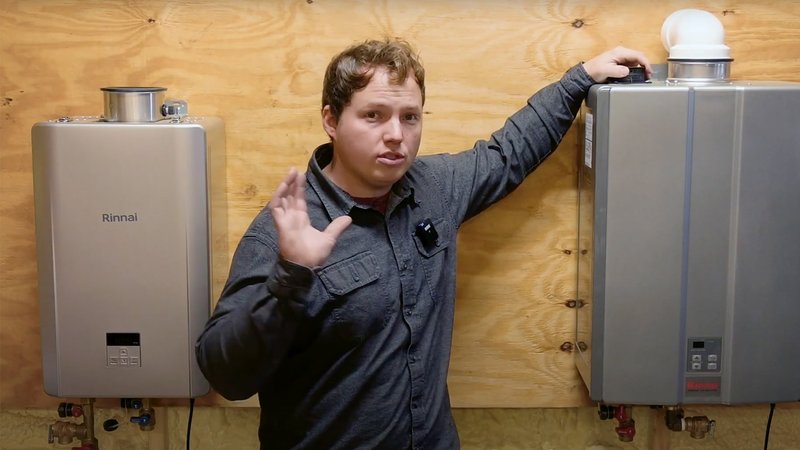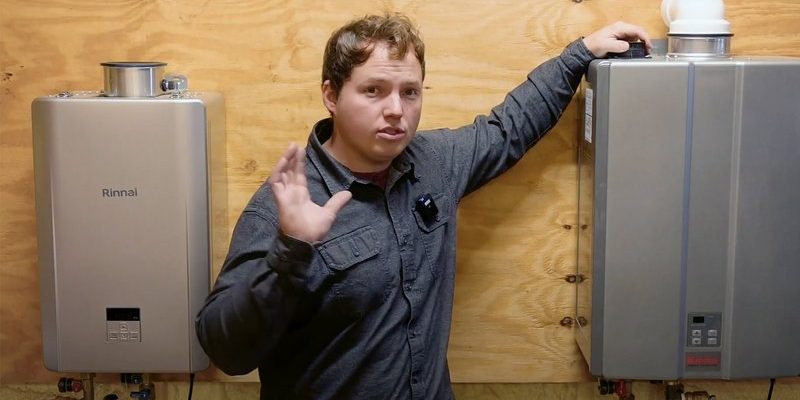
Imagine you just moved into a cozy apartment, and the landlord has already installed a brand-new Rinnai water heater. You’re excited about the instantly hot showers, but then a little question pops into your mind: Can I, the tenant, register this water heater to get warranty benefits or support, even though it was purchased and installed by my landlord? It’s like inheriting a fancy gadget and wondering if you’re the one who gets to push the “activate” button.
Let me explain why this question comes up so often. Rinnai water heaters usually come with warranties and offer customer support that requires registration, often tied to the owner or purchaser of the unit. But who counts as the owner here? The person who bought it (the landlord) or the person using it daily (the tenant)? We’ll dig into how Rinnai’s registration system works, what tenants need to know, and how this all plays out in real life.
How Does Rinnai Water Heater Registration Work?
First things first, here’s what happens when someone registers a Rinnai water heater. Registration typically links the product’s warranty to the person who purchased it. That way, the company knows exactly who to contact if there’s a product recall, update, or if technical support is needed down the road. This registration usually asks for details like the serial number, installation date, and buyer contact info.
Here’s the catch: the system is set up with the buyer in mind, not necessarily the user. Since landlords are the ones buying and installing these units, they technically hold the warranty and registration rights. Think of it like buying a smartphone—if your friend buys it but you use it, the warranty is under their name unless they transfer it.
For tenants, this often means they don’t have direct control over the warranty or the ability to register the device themselves unless the landlord provides permission or hands over the necessary details. This setup is standard across many appliance brands, not just Rinnai.
Why Would Tenants Want to Register a Rinnai Water Heater?
You might be wondering, “If the landlord bought it, why should I care about registering it?” Honestly, it’s about protecting your daily comfort. Registering the heater helps ensure quicker service if something breaks or troubleshooting assistance if the unit starts acting up. It also means you’ll get important updates, like safety recalls or software upgrades for smart models.
Sometimes tenants want to register the water heater to confirm that the unit’s warranty is active or to avoid any hassle when requesting repairs. There’s also peace of mind in knowing the product is officially noted as installed at your address. But here’s the thing—without the landlord’s cooperation, tenants might hit a wall trying to register the unit themselves.
In some regions, renters who register appliances might also have a smoother time dealing with insurance claims or maintenance requests, especially if the landlord is less responsive. So it’s not just about the warranty, but also having a bit of control over a critical home system.
Can Tenants Legally Register a Rinnai Heater Bought by the Landlord?
Here’s where the legal and practical lines blur. The warranty and registration terms from Rinnai explicitly state that the registration should be completed by the original purchaser or their authorized agent. Since the landlord is the one who purchased and installed the heater, they hold that right by default.
This means tenants can’t usually register the heater under their personal name unless the landlord agrees. It’s similar to car ownership—you can drive the car, but the registration is in the owner’s name unless ownership officially changes. In rental scenarios, landlords maintain ownership of major appliances, including water heaters.
Now, you might ask, “What if I try to register anyway?” Technically, if you provide the serial number and the installation address, the system might let you complete registration. But if warranty service is ever needed, Rinnai will check the original purchase records, and if things don’t match, it could lead to confusion or denial of service.
How Can Tenants Work With Landlords for Registration?
The best approach is open communication. If you’re a tenant who wants to make sure the Rinnai water heater is registered and covered, ask your landlord for a copy of the purchase receipt or ask them to register the unit themselves. Sometimes landlords don’t realize the importance of this step, so a gentle nudge can help.
Here’s a simple way to handle it:
- Ask your landlord: Has the water heater been registered with Rinnai? If not, can they do it or provide you authorization?
- Share installation details: Having the serial number and installation date handy speeds up the process.
- Request proof of registration: This can be helpful if you ever need to troubleshoot or report a problem.
In cases where landlords are unreachable or uncooperative, tenants might have limited options, but some local tenant laws could offer guidance—more on that soon.
What Happens If Tenants Try Registering Without Landlord Consent?
Trying to register a Rinnai water heater without the landlord’s consent is a bit of a gray area, but it usually isn’t recommended. The registration system expects the registering party to be the owner or authorized agent. If you enter your information instead of the landlord’s, warranty claims or support calls might run into roadblocks.
Imagine you’ve tried to sync your remote to the heater, but when something breaks, Rinnai’s customer service asks for the original buyer’s info. If that doesn’t match your registration, you’ll be stuck explaining the situation—delaying repairs and frustrating everyone involved.
Also, tampering with registration might violate the product’s warranty policies, risking voiding coverage altogether. Honestly, it’s better to keep everything above board to avoid these headaches.
Alternatives for Tenants: What Can You Do?
So, what if your landlord isn’t helpful or the registration wasn’t done? Tenants do have a few options:
- Use the remote and basic functions: You can control temperature, reset codes, or troubleshoot common issues with the heater’s remote. Many Rinnai units have user-friendly interfaces meant for everyday use.
- Note down the model and serial numbers: Keep a record in case you need to request maintenance or prove the unit’s age and warranty status later.
- Request written maintenance commitments: Some places require landlords to maintain appliances, so having documentation helps if the heater breaks.
- Contact local tenant rights groups: They might offer advice or support for appliance-related disputes and repairs.
Even without direct registration, knowing how to reset or pair the remote, replace batteries, and do minor troubleshooting can save you time and cold showers.
How Does the Rinnai Remote Play Into This?
Many Rinnai water heaters come with a remote control, letting you adjust water temperature and settings from your bathroom or kitchen. This remote is a handy tool for tenants who want some control without digging into the heater itself.
Here’s the cool part: the remote often pairs directly with the unit, and syncing it is usually straightforward. If you ever have trouble pairing or if the remote shows error codes, a quick reset can often fix it—no registration changes needed.
That said, knowing the remote’s battery life and troubleshooting simple errors can keep you comfortable while the landlord handles warranty or repairs. It’s like having your own little command center for hot water—just don’t expect it to replace the need for proper registration or maintenance.
Wrapping It Up: What’s the Takeaway for Tenants?
Here’s the thing—tenants generally can’t register Rinnai water heaters bought by landlords on their own because the warranty and product ownership belong to the person who purchased the unit. But that doesn’t mean tenants are powerless. Knowing how the system works, communicating openly with landlords, and understanding the remote control’s role can make a big difference in your daily comfort.
In the end, if you find yourself living with a Rinnai water heater, think of it as a team effort. The landlord’s got the ownership and registration keys, but you have the remote and know-how to keep things running smoothly. Together, you’re making sure those hot showers keep coming.
